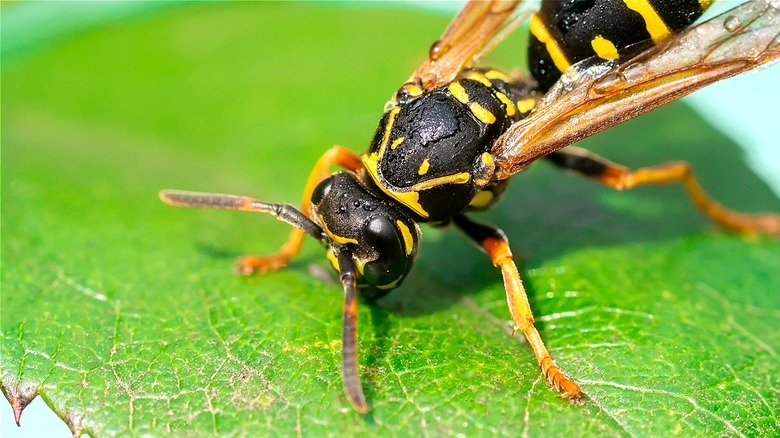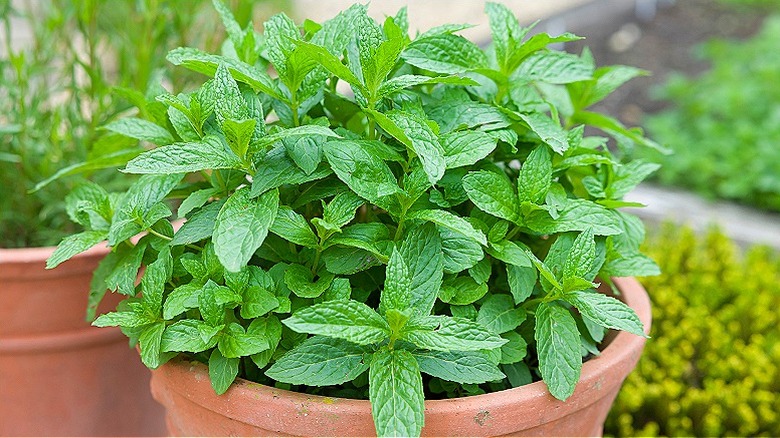Repel Wasps With This Easy-To-Grow Garden Herb Favorite
Wasps are nobody's favorite bug. Unlike bees, which usually avoid stinging people, wasps can be pesky, invasive, and persistent. And it doesn't help that meeting the business end of a wasp's stinger can be incredibly painful. But regardless of these less-than-lovely attributes, wasps are in fact helpful pollinators, just like bees and butterflies. At a time when many pollinators are endangered, we can't afford to swat each wasp away or kill it with harsh, synthetic chemicals. But we also understand the need for wasp control. Luckily, you can strategically plant an herb that will prevent wasps from coming near your home. That herb is none other than regular old mint.
Mint has a pungent smell that wasps can't stand; it's distinct even to regular human noses. By planting a patch of mint herb in the garden or buying a little herb pot of the stuff, you can ward off wasps and keep you and your family safe from any potential nasty stings.
Natural, cheap, and easy wasp control
There are several varieties of mint, but the most common types for culinary use are spearmint and peppermint. Both of these mint varieties have a distinctive, potent fresh, cooling smell, and both should help repel wasps from your garden and yard. Peppermint is about 40% menthol, while spearmint gets its brisk flavor and smell from carvone and eucalyptol.
It should be noted that one of the best things about mint is that it can grow rapidly under almost any circumstances. Unfortunately, this can also be a very bad thing as the herb can spread beyond your designated perimeter and compete for resources elsewhere in the garden. To avoid this, grow your mint plant in a stand-alone pot or bed.
If you're facing wasp problems in the colder months and aren't able to maintain a mint plant, you can still harness the power of this herb. Either infuse the fresh mint leaves in water or try adding a few drops of mint essential oil to a spray bottle so you have an on-hand wasp-be-gone treatment. With regard to essential oil, specifically peppermint essential oil, note that contact with menthol can cause skin and eye irritation, per Poison Control.

